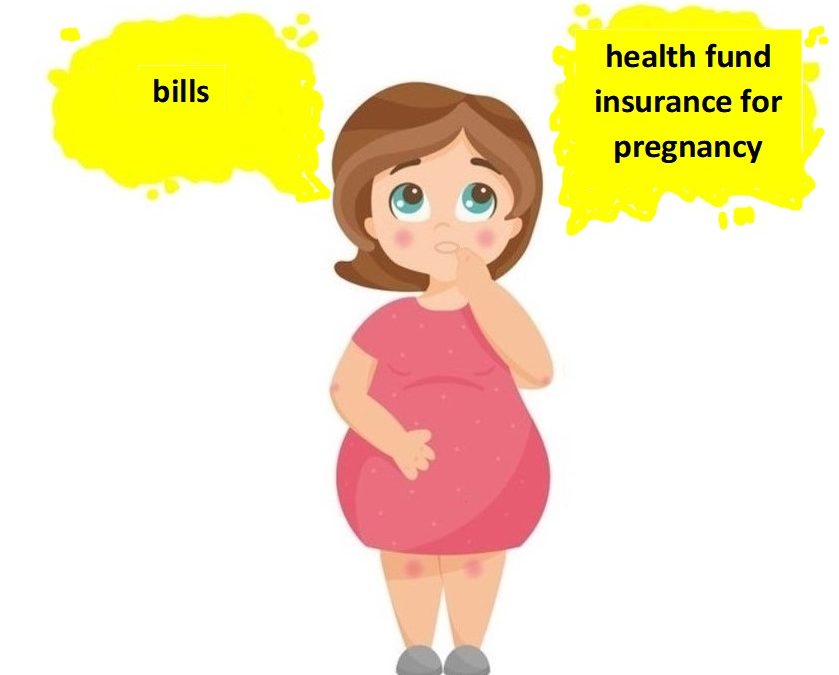I have recently had several uninsured patients deliver where ‘out of pocket’ expenses were far more than they anticipated because of pregnancy complications or adverse health developments not related to pregnancy. While out of pocket expenses in pregnancy are usually what is anticipated this cannot be certain, as adverse pregnancy and childbirth developments can happen even in the lowest risk pregnancies. The financial cost of management of such adverse developments can add significantly to the bill. As well there can be ‘not pregnancy related’ adverse health developments that happen in the pregnancy which require hospitalisation and sometimes surgery and so unexpected extra expense.
pregnancy. While out of pocket expenses in pregnancy are usually what is anticipated this cannot be certain, as adverse pregnancy and childbirth developments can happen even in the lowest risk pregnancies. The financial cost of management of such adverse developments can add significantly to the bill. As well there can be ‘not pregnancy related’ adverse health developments that happen in the pregnancy which require hospitalisation and sometimes surgery and so unexpected extra expense.
In these times for many there are increasing financial challenges. With increasing home loan interest rates, home rents, food, energy, petrol, and more costs many are trying to work out where they can save money. Private health insurance is not cheap and so it is very tempting to cancel this.
Cancelling private health insurance will save money until there is the unplanned pregnancy or a serious adverse health development that requires hospitalisation and possibly surgery. You are left with the option of going public (where you will be managed usually by junior trainee medical staff and if surgery is needed often having to wait a considerable time for your needed operation) or paying often considerable medical bills out of your own pocket. The cost of these bills can be far more than you would have paid if you had continued paying your private health insurance premiums. And when you re-join your health fund there will be a 12 month wait where you are paying premiums before you are covered.
There is considerable information about differences between private and public pregnancy care in the article on this website I wrote titled ‘Private vs Public Care for my Pregnancy’.
My wife and I have personally experienced time when we had very little money. But in these times, we still paid our private health insurance premiums. When we came back to Australia after completing my specialist training in Oxford England, we had no money. The bank gave us 110% home mortgage, a credit card, and an overdraft. I had considerable expenses in setting up my practice, household bills, mortgage repayments but with no income. Back then there was no obstetric patient income until after the patient delivered. She was only billed after confinement. It could be a couple of months after invoicing for pregnancy care and confinement before she paid her bill. There were a considerable number of bad debts. But despite all this financial pressure we continued our private health insurance. A short time after I was in private practice Australia had what Paul Keating called “the recession we had to have”. Home loan interest rates went to 17%. But we continued our private health insurance. In more recent years our married children have times when they have had financial challenges. But they have continued their private health insurance payments.
I strongly advise you: “Don’t quit your private health insurance”.
If you must cease your private health insurance, then plan carefully what you will do if you have an unplanned pregnancy, or you (or a family member) have a serious adverse health development. Regarding pregnancy, unless you have decided you will be satisfied with public pregnancy care, make sure you have very effective contraception until after your finances improve and you have health insurance cover.
I consider the Mirena IUCD the most effective reversible contraceptive option. Condoms, withdrawal, the calendar method and even the contraceptive pill can result in unplanned pregnancies. The Implanon rod is another option, but I consider it has more failures and is associated with more adverse bleeding than the Mirena. Personally, I have inserted many hundreds of Mirena IUCDs, and I am not aware of any patient who has a Mirena I inserted who has had an intrauterine pregnancy with a Mirena IUCD in situ. There was one patient who had an ectopic pregnancy. The Mirena is not designed to prevent ectopic pregnancies


